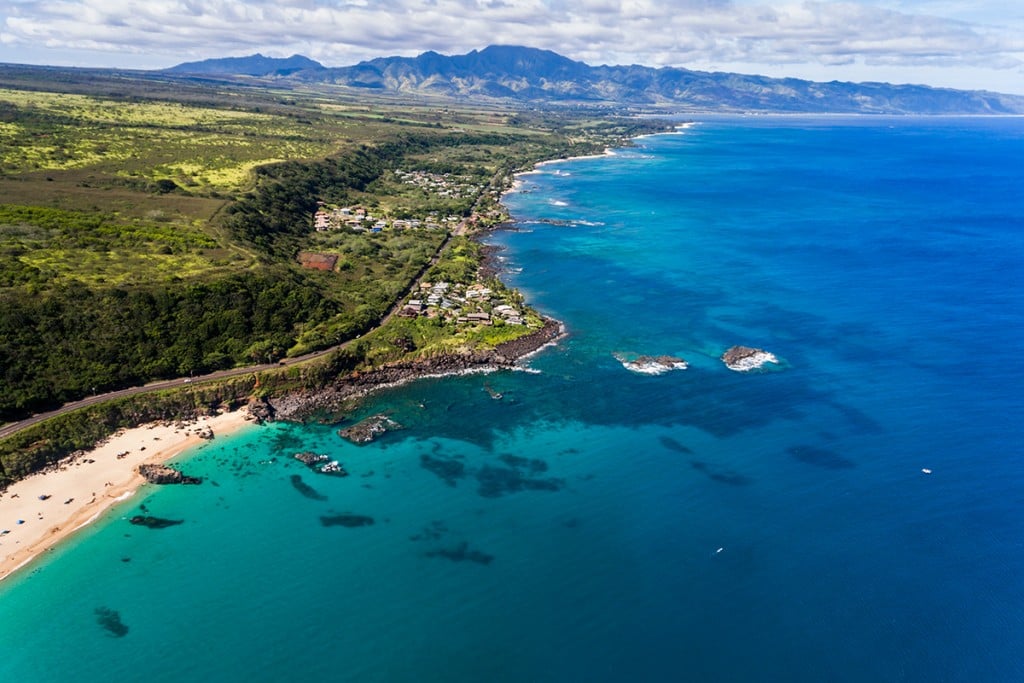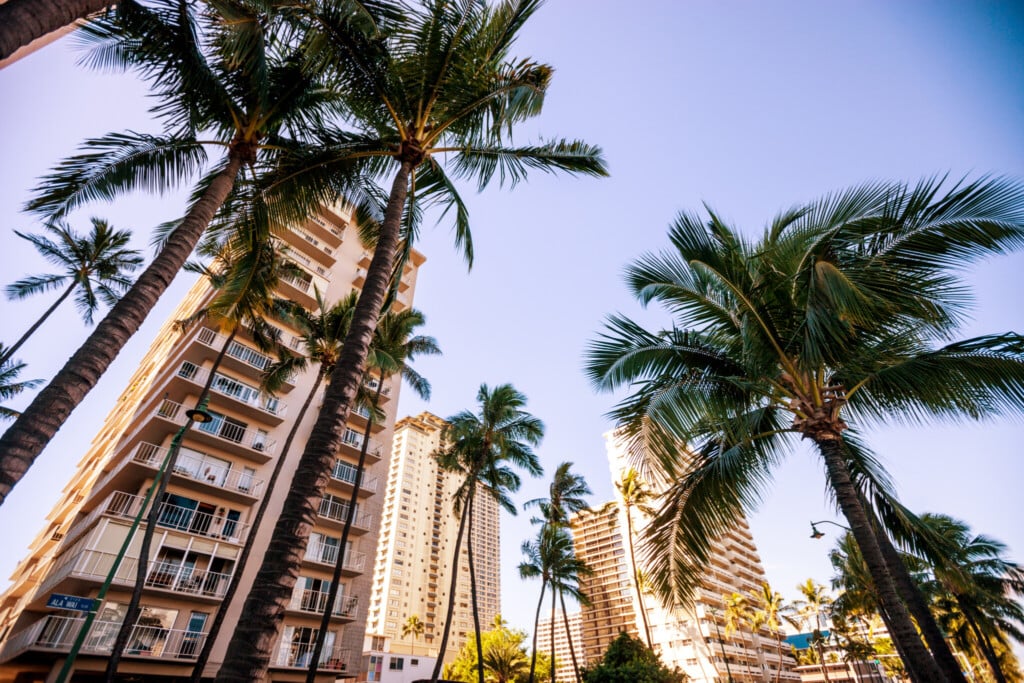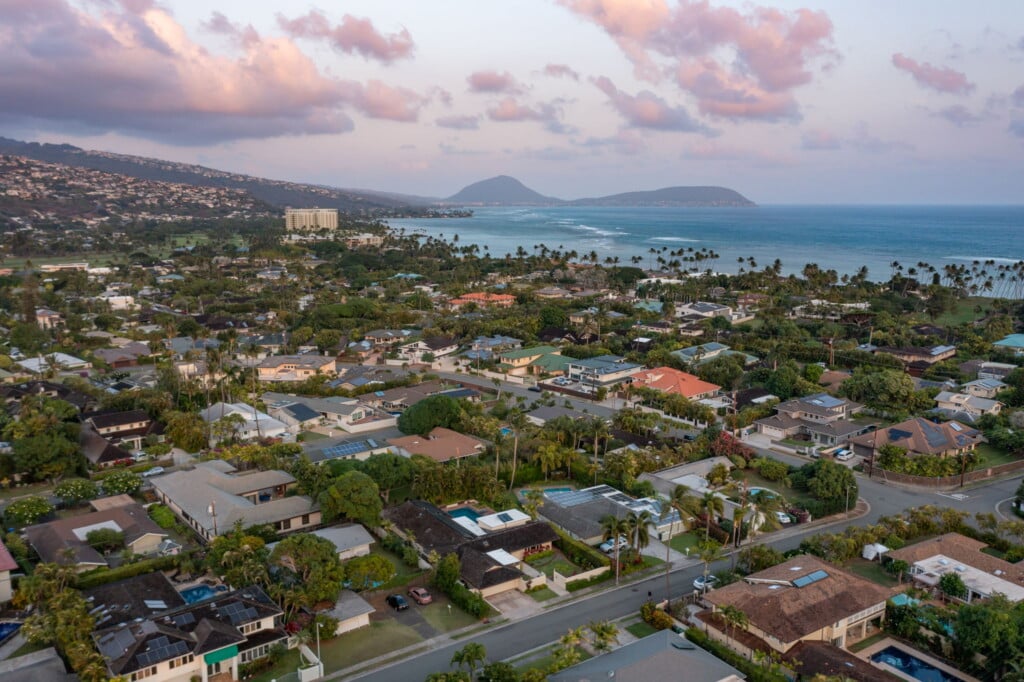10 Things Every New Hawaiʻi Resident Should Know
From living aloha to Hawaiian time, here a few local customs and unspoken rules to be aware of before moving to the Islands.

Living in Hawaiʻi isn’t as easy as packing your bags, buying a plane ticket and sipping mai tais on the beach. Well, actually, you can and probably will do just that—specifically the mai-tais-on-the-beach part—but like any other place in the world, Hawaiʻi has its own unwritten book of codes, customs and phrases that can take years to learn. To give you a head start on navigating Island living, List Sotheby’s International Realty agents Drew Read and Sandra “Nina” Thompson helped to create this list of 10 things that new or incoming residents need to know.
1. Live Aloha
“The meaning of ‘live aloha’ is basically being respectful, loving and kind to not only yourself and other people, but also to the natural environment and the wildlife on land and in the ocean,” says Read. “Being kind to the ʻāina (land) that provides us all the natural beauty and food and being kind to each other on crowded roads and in the surf represents living aloha.”
2. Take a Drive
“Drive around the island at different times of the day. Take your time to drive through neighborhoods, go into the local stores, and just experience the communities around you,” says Thompson. “And by all means, do the drive from your neighborhood to your office—you’ll need to experience the commute. Also, please don’t honk your horn!”
3. Brush Up on your Pidgin
If you’re coming to Hawaiʻi for the first time, prepare to be blasted with phrases and words that might not make any sense to you. Hawaiian pidgin English is spoken by many Hawaiʻi residents, and words and phrases from ʻōlelo Hawaiʻi (Hawaiian language) are also the norm here in the Islands. A few common words include grinds (food or a meal), howzit (combination of the words “how,” “is” and “it”), shoots (agreeing with something, or as a replacement for “sure”) and pau (a Hawaiian word used when you’ve completed something, or a task is done).
4. Hawaiian Time
“Hawaiian time means to hang loose and relax, that things will happen when they happen, but not immediately,” says Read. “When people run late to an appointment or meeting, they are on Hawaiian time.”
5. The Law of Barefootedness
It may seem odd, but in Hawaiʻi, having your shoes on in the house borders on a crime. This unspoken law of barefootedness dates back to plantation days, thanks to a mix of cultural norms given to us by Chinese, Filipino and Japanese immigrants, so follow suit and add to the pile of shoes and slippahs at the doorway.
6. Hawaiians, Locals and Kamaʻāina
Understanding the numerous labels for Hawaiʻi locals is key, so listen well. The term “Hawaiian” should only be used for those with actual Hawaiian blood coursing through their veins. A “local” on the other hand is a term that can be used to describe anyone from Hawaiʻi, regardless of race. Finally, “kamaʻāina”—which in ʻōlelo Hawaiʻi means “child or person of the land”—can be used for anyone who has lived in the Islands for a long time.
7. Hawaiian Geography 101
“Understanding the Islands’ geography, for example, its different locations, terms and phrases used to describe a location—town, country, ʻewa (west, in the direction of the ʻEwa region), Diamond Head, Koko Head, mauka (inland) and makai (toward the ocean)— is vitally important for getting around,” says Read. “For example, ‘We are on the ʻewa side of Kaimana Beach waiting for you’ or ‘The hotel is on the Diamond Head side of Waikīkī and on the makai side of Kūhiō Avenue.’”
8. Respect Your Neighbor
“Live by the Golden Rule and treat others as you would like to be treated,” says Thompson. “We live in a small island community and everybody knows everybody, so please be respectful. Hawaiʻi is our home, and it might become yours, too.”
9. Dress Island-Style
As nice as our tropical weather is, there are days in Hawaiʻi when the humidity is cranked up to the point that just walking a block will leave you sweaty and sticky. Fortunately, that means you get to dress down in your best slippahs, or slippers (but never flip-flops), aloha shirts and rompers. In fact, wearing anything more than just business casual here in the Islands is unusual.
10. Everyone’s an Auntie or Uncle
Coming to the Islands, you may just assume everyone who lives here has giant extended families full of aunts and uncles. But really, the terms “auntie” and “uncle” have been adopted by Hawaiʻi locals to refer to anyone older by at least a generation that they’re close to. And if you’re friendly enough, you too may one day become an auntie or uncle.
If you’re looking to purchase a piece of paradise, visit the List Sotheby’s International Realty website for a list of real estate agents and properties.
Sandra “Nina” Thompson, Realtor, HI License RS-22826, 321-5777, nthompson@listsir.com. Visit her agent profile here.
Drew Read, Realtor Associate, HI License RS-67769, 782-3636, dread@listsir.com. See his agent profile here.


